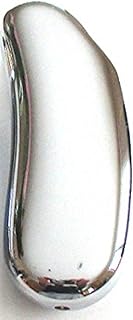The Environmental Impact of BIC Lighters
BIC lighters, while seemingly small and disposable, have a significant environmental footprint. Their impact stems from:
1. Manufacturing and Materials:
* Plastic: The majority of BIC lighters are made from polypropylene, a non-biodegradable plastic derived from fossil fuels. Its production requires considerable energy and releases greenhouse gasses.
* Butane: The fuel used in lighters is butane, a flammable hydrocarbon extracted from natural gas. Its extraction and processing contribute to air pollution and climate change.
* Metals: Lighters also contain metals like steel and brass, mined through processes that can damage ecosystems and contribute to pollution.
2. Disposal and Waste:
* Landfill: Disposable lighters end up in landfills, where they take hundreds of years to decompose. This contributes to soil and water pollution.
* Lighter fluid: Leaking lighter fluid contaminates soil and groundwater, harming wildlife and potentially impacting human health.
3. Environmental Impacts:
* Greenhouse Gas Emissions: The production, transportation, and use of lighters release significant amounts of greenhouse gases, contributing to climate change.
* Air Pollution: The burning of butane releases pollutants like carbon monoxide, nitrogen oxides, and particulate matter, which contribute to respiratory problems and smog.
4. Alternative Solutions:
* Refillable Lighters: Choosing refillable lighters significantly reduces plastic waste and butane consumption.
* Electric Lighters: Battery-powered lighters are becoming more prevalent, offering a zero-emission alternative.
* Reducing Lighter Use: Considering alternatives like matches or candles, especially for outdoor activities, can minimize your impact.
5. Corporate Responsibility:
* BIC has implemented some sustainability initiatives, like using recycled plastic in some products and working towards reducing its carbon footprint. However, there is a need for further improvement and transparency in their sustainability efforts.
Overall, BIC lighters, while convenient, contribute to environmental problems through their production, disposal, and use. Choosing reusable alternatives and reducing overall lighter use is crucial to minimize your impact.


